 A Ruptured Colon is a Life Threatening Condition
A Ruptured Colon is a Life Threatening Condition

Colon perforation is a situation in which there is a hole in the colon, the part of your digestive system also known as the large intestine. It can be caused by a puncture, a tear, or even a cut.
While very small perforations may correct themselves over time, a larger perforation of the colon is a life-threatening medical emergency, and patients need to have surgery as soon as possible to increase their chances of survival.
The actual danger of colon rupture is connected to a fecal leak into the peritoneum. Feces is rich in bacteria, and peritonitis develops as a result of their presence, multiplication and accompanying inflammatory reaction. Bacteria and their toxins can be further absorbed, get into the bloodstream, and cause sepsis or even septic shock — which can finally lead to a lethal outcome.
Causes of Perforation of the Colon
A variety of causes can lead to the rupture of the colon, the most frequent being trauma. The colon perforates either due to penetration of foreign objects from the outside, such as in a vehicle accident, or after accidental or intentional swallowing of certain objects (usually sharp objects).
Apart from trauma, a colon can rupture or be perforated due to numerous medical conditions, including inflammatory bowel disease, which affects the entire wall of the intestines, appendicities, which weakens the colon wall, or various infections.
Even during some surgical procedures in the abdomen, there is a chance of accidental perforation of the large intestine. These cases are often immediately spotted and corrected on the operating table. Finally, patients with advanced colon cancer many times face their disease for the first time after colon perforation.
What Are the Possible Symptoms of Colon Rupture?
Right before the very rupture a patient may complain about weakness, severe pain in the abdomen, and cramps. Diarrhea or constipation can be additional signs which occur before the colon rupture. Apart from the previously mentioned symptoms, there can also be traces of blood in the stool, or the stool can be noticeably dark-colored. A fever is common before a colon perforation, as well.
Surgical Treatment to Repair the Colon Rupture
In the majority of cases it is not difficult to make a diagnosis of colon rupture or perforation. The most important thing is to proceed as soon as possible with the surgery, and to prevent possible complications of the colon rupture.
A surgery will prevent some of the complications, and save patients' lives. Well experienced doctors will find the cause of the rupture quickly and the patient is going to be operated on within a short period of time. The goal of the surgery is to close and repair the rupture, and to clean the peritoneum from feces and accumulated fluid.
This way, the risk of possible peritonitis is reduced. Apart from the surgery, a patient who just experienced a colon perforation requires high doses of antibiotics, which will additionally help in the battle against any infections that may have led to the colon perforation, or can occur after it.
Antibiotics are administered intravenously together with fluids because the patient must not eat for a certain time after the procedure. A rupture of the large intestine can be successfully prevented in patients who are already suffering from medical conditions which can eventually result in a rupture. As expected, not all colon ruptures can be prevented, but in these cases the prompt reaction of the medical team and timely surgery can help the patient stay alive.
Colonic Irrigation
Colonic irrigation, also known as colon hydrotherapy, is a procedure that has the purpose of eliminating feces and toxic substances from the colon. The large intestine is literally flushed with warm water. In spite of being rather safe, this procedure does have several possible side effects. They include dehydration, imbalance of electrolytes, allergic reactions, infections, and in rare cases perforation of the colon.
The patients are given certain advice before the procedure, which they must obey to maximize their safety.
No heavy meals and large amount of beverages are allowed prior to the procedure. The very procedure includes placement of a rubber tube into the rectum. What follows are regular injections of small amounts of water, which will help in loosening of all the waste in the colon. The entire procedure lasts approximately 45 minutes.
Supporters of colonic irrigation claim that waste in the bowel may cause a variety of colon diseases. By performing colonic irrigation this risk can be drastically reduced. They also say that people who are suffering from chronic fatigue, allergies, and those with irregular bowel movements, chronic bloating, and irritable bowel syndrome can significantly benefit from this procedure. Still, not everybody shares the opinion of colonic irrigation supporters.
Is Colonic Irrigation a Good Idea before Colon Perforation Surgery?
Irrigation with large amounts of water results in the elimination of a lot of bodily fluids. Rapid loss of fluid may lead to dehydration. The person complains of fatigue, which can be evident right after the procedure. Repeated irrigation and draining of the water can result in a loss of certain electrolytes, including sodium, and potassium. This leads to the imbalance of the electrolytes, and the symptoms of hyponatremia, and hypokalemia.
In some cases, the specialist who performs colonic irrigation uses water and certain herbs together. For those susceptible, these herbs may cause serious allergic reactions. This is why it is important to report all the allergies to medications and other allergens prior to the procedure. Another potential complication is an infection. An infection may be caused by contaminated instruments, which can be successfully avoided by adequate sterilization of all the equipment. The most serious complication of colonic irrigation is perforation of the bowel. It may occur due to the increased pressure of irrigated water, or be caused directly by instruments.


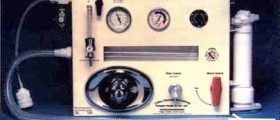


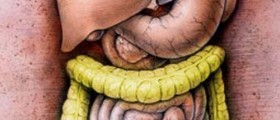

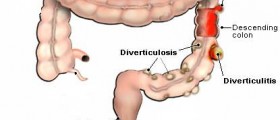
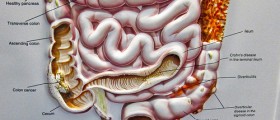
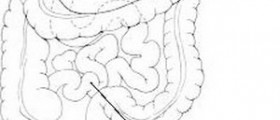

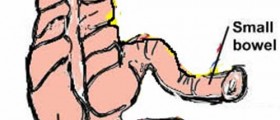

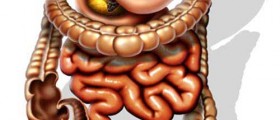

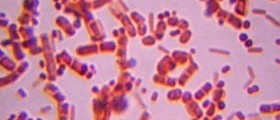

Your thoughts on this
Loading...